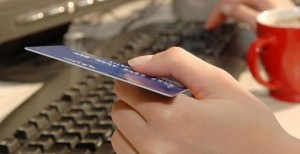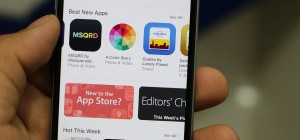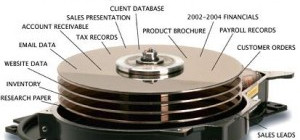 It is always better to be safe than sorry, and this is especially true when it comes to your personal information. Keeping your information secure online needs some time and care, but this is way easier than losing something that is really important to you. Every month, a hack happens and it affects millions of people; last year it was the TalkTalk hack and in 2016, the LinkedIn leak.
It is always better to be safe than sorry, and this is especially true when it comes to your personal information. Keeping your information secure online needs some time and care, but this is way easier than losing something that is really important to you. Every month, a hack happens and it affects millions of people; last year it was the TalkTalk hack and in 2016, the LinkedIn leak.
Online, you may encounter malicious software, small time scammers and snooping eavesdroppers who are targeting people on a daily basis through phones, USB sticks and Wi-Fi networks. Staying safe online may give you the impression that you’re crossing a minefield, and it is daunting to many people. But, if you follow these several simple tips, you will be able to stay safe in this digital age.
Protect Your Password
Since you are not likely to openly share your password with someone you do not trust, you also need to be aware that this is not the only way for your password to get compromised. Yes, keeping your passwords to yourself is an important step, but there are a couple more things you can do. One thing is that you can choose a password that will not be that easy to guess. We suggest to combine a personally memorable sentence, and modify that sentence into a password, along with a few other symbols.
Also, many of us are guilty of having the same password for every account, and perhaps something even worse than that is that the most common passwords are “123456” and “abc123”. One of the best way to keep all of your online accounts safe is to never use the same password more than once. So, create a different password for your every account and store them using a password manager. These are services that store passwords securely, so no worries.
Always Stay Up To Date
Downloading software updates when they are available is a great way to protect yourself online. Software updates for computers, tablets, smartphones and other devices include improved security settings and patches that are able to fix vulnerabilities. The same goes for the updates regarding any programs and apps you have installed on your devices. To ensure that you always receive updates as soon as they are available, you need to enable automatic updates on all of your devices, often by scrolling through the “Settings” app.
Protect Your Email
Whether you believe it or not, even in the age of Facebook, Twitter, Snapchat and text messages, people are still using emails as a form of communication and those emails are still getting hacked. Many times, people were told not to click on attachments coming from untrustworthy sources, but they apparently don’t listen to reason.
This leads to an email account being hacked or some program being installed on your computer. If you receive an attachment from someone you know, but you were not expecting it, first check with the sender to confirm if it was sent on purpose. Clicking on an attachment that is malicious will install malware on your computer in the form of a virus or a worm.
Be a Careful Online Shopper
If you are using your credit cards when shopping online, there is a risk that your personal information will be stolen and used for the purchase of something without your consent. This is why you need to keep a couple of things in mind.
Make sure to only use your credit card on websites that have the prefix “https”, because the “s” indicates that the website in question is using a secure protocol that encrypts the communication between the website and you. You will notice this protocol on online banking websites and shopping sites, because they require some sensitive information. If the “s” is not present after “http”, there is a chance that your card may be compromised.
Protect Your Mobile Devices
The tips we have mentioned above can all be applied to your gadgets or smartphones, but there are some practices that will protect your mobile devices even further. First, you need to make sure to set a lock code. Then, enable “Do Not Track” in your mobile web browser, and use recovery apps to find a stolen or lost device.
Make sure to insure your gadgets and mobile phones. Even if you are the most responsible and careful person, you will never know what can happen to your mobile devices, and these insurance plans ensure that you will either get the necessary repairs free of charge or even receive a brand new replacement if something bad happens to your mobile devices.
Be Clever With Online Dating
Since there are hundreds of thousands of us turning to dating apps each and every day, hoping to meet potential partners, there are a couple of ways to make sure that you will not put yourself in a compromising situation.
Try to avoid giving out private information when you are using online dating websites, and take every precaution. Make sure that the profiles you are looking at are, as a matter of fact, genuine. Do not be tempted to transfer or send money to people you meet online, no matter how unfortunate their story sounds.
Protect Your Accounts
When a majority of users logs into their accounts, they enter their password and username and they are in. This is a single-factor authentication and it is secure, but there is one way that is more secure when it comes to logging in into your important accounts.
Two-factor authentication uses additional security to access your accounts, like a unique pattern, or a fingerprint. This way, if someone gets their hands on your login information, they will also need access to your unique pattern or your fingerprint.
If someone wants to get your personal information, someone who has the time and the means, there is nothing you can do to stop them, because this can sometime be out of your hands. But, if you follow the tips we have given you above, you will be in control as much as possible. It will be your best bet for staying safe in the digital age.







